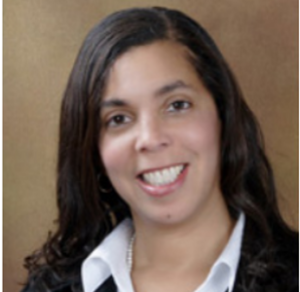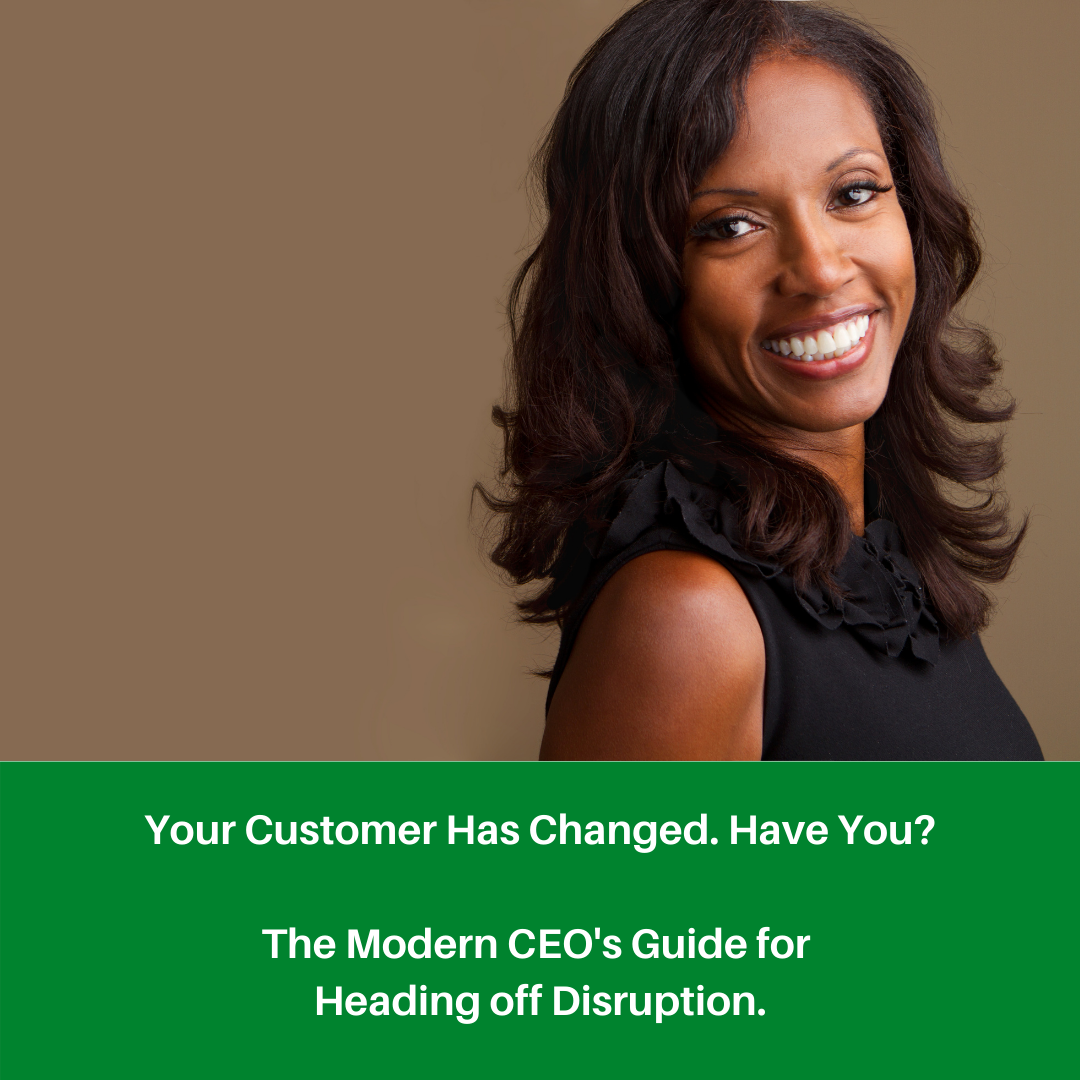The New CEO Series
“I took the job and it was awful, I was not prepared. It was traumatic,” said Dr. Taylor.
Welcome to The New CEO Series.
The CEO role and the internal capabilities required to grow a company are rapidly being redefined. The New CEO is grappling with the:
- Shift from shareholder to stakeholder
- Seismic demographic, ethnic, and gender transference from Baby Boomers to Gen Xers, Millennials, and Gen Zers
- Reimagination of physical products to digital products and services
- Recognition that understanding customer behaviors, not transactions are redefining customer relationships
- Realization that we’re in a Gilded Age where the veneer of everything is great to the Authenticity Age where leaders, consumers, and communities are leveraging social business and corporate social responsibility to solve the challenges we face.
If I had one word to describe Dr. Clishia Taylor, CEO of American Health Care Professionals, Co-Founder of Bless My People Foundation, and Director of Global Health Access (GHA) Institute, it would be innovator. Dr. Taylor wears a lot of hats, including nurse, CEO, co-founder, administrator, lobbyist, and entrepreneur.
Over the course of several weeks, as a part of The New CEO series, we’ll discuss: her origin story; why she became a CEO and how she builds internal capabilities; how innovation and customers are changing the health care industry, and how she defines The New CEO.
__________________________
Finding Her Passion
Carla A. Fleming (Fleming): I’m wondering why nursing? How did you jump into this? What was the impetus to pick nursing?

Dr. Clishia Taylor. Photo Credit: Dr. Clishia Taylor.
Dr. Clishia Taylor (Dr. Taylor): When I was 11, my brother quit his paper route when he was 13 and my mother asked, ‘You want to take his paper route?’ I said, yeah, I’ll take it. It was great; I was making $5 per week. Then my mother came home and said, they’re hiring student nurse’s aides, making $10 a week. At 16 years old, I’m like that’s a higher increase in rate.
I never desired to be a nurse. I thought about the law when I was younger because I loved Perry Mason and I loved the TV show Paper Chase and all that stuff. I said, Mom, you’ve got to get me that job, you’ve got to get me that job as a nurse’s aide.
And, my mom said, ‘If you get the job, you’ve got to stay there for three years.’ And I’m like, why? She said she didn’t want me to quit and embarrass her.
Fleming: What was your first day on the job was like?
Dr. Taylor: I took the job and it was awful, I was not prepared to wash elderly people and get them dressed. It was traumatic.” On the first day on the job, “I was assigned five patients – get them dressed, washed, and breakfast before noon. I had to wrestle with a patient who was very combative and had dementia. I had scratches all over me. It was 12 p.m. and I had one patient out of bed. The other four patients were still in bed and had not had breakfast,” she said.
“So, all the staff went to lunch and came back and saw I still had four patients in bed. The nurses were worried that everyone’s getting fired today and jumped in to get the rest of the patients dressed. The nurses told me to go and get lunch before the cafeteria closed.
So, I get on the elevator, and my hair is all over the place. Tears are already running down my face. I get down to the first floor and I’m on my way to the basement where the cafeteria is, and the elevator stopped on the first floor. My mother is at the elevator and she asks, ‘How did it go?’ I’m like, good mom. I smiled as the elevator door closes. I made it to the basement to the locker room and I just cried. I thought, I can’t do this! I just started crying. I didn’t even eat lunch.
Fleming: Did you go back the next day?
Dr. Taylor: I came back the next day and the next, and every day.

Nursing Students. Photo Credit: Canva.
Fleming: What changed?
Dr. Taylor: It was one of the student nurses. She was in medical school to become a doctor. I wasn’t going to college (after high school) and she persuaded me to go to college. She told me, ‘You should go to college and you should go into nursing.’ She basically became my counselor. So, I got to nursing school, did the Licensed Practical Nurse program in high school, and then got accepted into a Bachelor of Science in Nursing (BSN) school to become a Registered Nurse
I fell in love with nursing. I could get 25 patients up in three hours. Well, maybe that is an exaggeration, but I am certainly better than I was when I was 16. By the time I was 18, I could do anything. I had really mastered time management and organizing myself. I stayed three years until I went to college. And, even went back to work at the nursing home as a registered nurse just because all of the registered nurses there mentored me.
At the nursing home, there were people who were Holocaust survivors. I got tremendous wisdom from them. One of the patients, a Holocaust survivor, asked if she could give me a piece of advice? I said sure, what’s the advice? She says ‘Don’t get old.’ I’m like, how does one not get old?
What she meant is don’t get old and not prepare. Think about getting old when you’re younger.
Fleming: So, you went from nursing school to graduate school. What motivated you to become an administrator?
Dr. Taylor: I’m on the psych unit as a nurse. I saw there was a different treatment of people based on their insurance and their social economic situation as well as ethnicity. I realized there were a lot of problems. Providers had bias and did not have a true understanding of health literacy when treating patients. They did not fully comprehend their culture, financial challenges, and language barriers to fully comprehend their patient’s health care.
That’s when I was convinced by another nurse. She said, ‘Don’t get your masters in nursing. Get an MBA.’
I asked why? I don’t like business.
What she said to me is, ‘The ones that impact change at hospitals are the administrators that have an MBA degree.’

Studying for MBA. Photo Credit: Canva.
Fleming: What did you learn as an MBA student about health care and the industry?
Dr. Taylor: I saw there was a transformation taking place in D.C. and that transformation was they were going to do what they called health care reform. That was the first one. In 1994 the Administration said they wanted to do health care reform.
So, I did write the letter and I sent it three times to the administration, indicating I’m a nurse, I’m a woman of color, and soon to be an MBA graduate. I would love for you to consider me to be on your panel at the White House to see how we can reform health care.
I got a call back from the White House and I’m like is this for real? They said ‘We want to bring you down to a closed forum to talk as a leader about health care reform.’
I’m like 22, 23 years old, got my blue suit on, and came down to DC to the White House. We were in this closed forum with maybe about 30-40 people and I was able to voice my thoughts and concerns. I realized this is where change takes place.
I decided to do my master’s thesis on health care reform as it pertained to lobbying. The White House gave me an internship (as a liaison to Congress) to study how PACs influenced health care reform.
If I was going to have a life in politics, I decided I needed to finance my campaign, so I wouldn’t be compromised. I saw community health as a way to provide health care for the community as well as have an income so I could pursue my political aspirations. That’s when I opened up my business.
Next time, Dr. Taylor will share what it was like to become a CEO and the lessons she’s learned in building the company’s internal capabilities as The New CEO.
In 2020, we will celebrate the 200th anniversary of Florence Nightingale. Also, next year the UN will recognize the “2020 International Year of Nursing and Midwife.” For more information, watch the video, courtesy of Global Health Access Institute.
The New CEO Series continues: read Part 2 of Dr. Taylor’s journey of becoming a CEO.
If you find this interesting, please share on LinkedIn, Twitter, Instagram, and Facebook.
Photo Credits: Dr. Clishia Taylor, Canva, iStock, and Global Health Access Institute.



You must be logged in to post a comment.